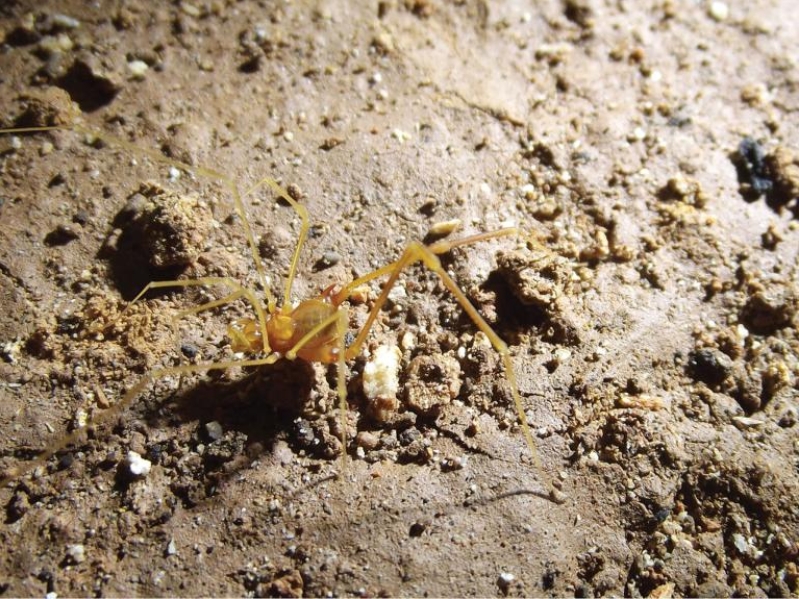
A group of Brazilian scientists discovered a new species of spider which they named "Iandumoema smeagol," referring to one of the characters from J.R.R. Tolkien's The Lord of the Rings. However, "Late Show" host Stephen Colbert had some issues about the name of the new spider.
The cave-dwelling spider I. smeagol shared a similar lifestyle to a character from J.R.R. Tolkien's beloved novel, who became Gollum after acquiring the One Ring. The scientists said the new spider spends most of its time inside the cave, just like Smeagol.
But for the host, who loves the Lord of the Rings, Smeagol was not a scary creature that lived in a cave. Colbert also detailed how Smeagol become Gollum and how the fictional character killed his cousin after getting the One Ring.
Colbert explained the new spider should not be named Smeagol, it should be Gollum--who hid his guilt and hid from the sun by going into a cave. His shame and fear transformed him into a terrifying creature.
Furthermore, the host said: "You don't discover a venomous snake and name it Anakin. You name it Darth Vader."
Colbert's second point was that the scientists should name the spider after a Lord of the Rings character that is a spider: Shelob, who appeared at the end of the fourth book, The Two Towers, of the Lord of the rings. The evil spider lived in the mountains near Mordor.
"I thought you guys were scientists," the host said, schooling the expert. "This is sad."
According to Ricardo Pinto-da-Rocha, lead author of the study from Sao Paulo's Instituto de Biosciences, the new species of spider is scavenger or omnivore. The spider is not considered dangerous to people because it lacks venom and sharp teeth.
I. smeagol has a single pair of eyes and fused body structure that is different from other spiders.
This latest species was found near the town of Monjolos in Minas Gerais, in southeastern Brazil. The cave where it was discovered was not protected, allowing Brazilian scientists to discover it. However, the spiders could be vulnerable to extinction because it would be difficult for them to move to other areas.
Norman Platnick, an arachnologist at the American Museum of Natural History, said I. smeagol can only be found in caves. "This discovery isn't all that unusual," he said.
The Brazilian scientists published their findings in journal Zookeys.







